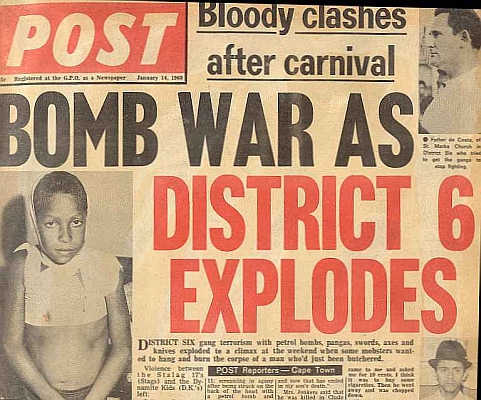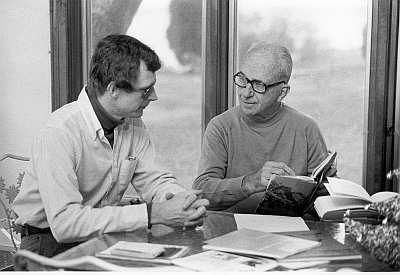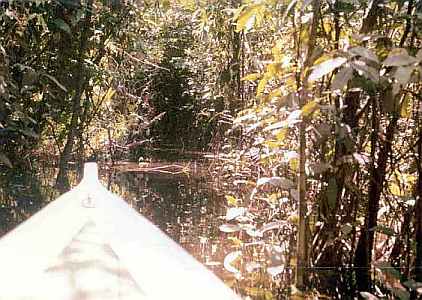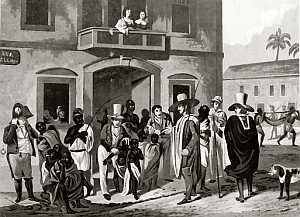“Dear Errol,
On this little island, in this little town, the little bookstore carries in its window a copy of Brazil prominently displayed as one of the fine novels of the season. Glad to see on my latest walk that the copy had been sold.
I’m delighted with the reception so far and hope that the book enjoys, as it should, a long, long run.
Best of good fortune in all you attempt. You know how to write.” -- Jim
(Sheldon Jackson College, Sitka, AK, August 28, 1986)
Mr. Michener supported Brazil with generous grants totaling $20,000 over the five years I took to write my epic. Along the way, Michener read many chapters as I wrote them. When invited by my publisher to comment on my manuscript, he had this to say:
“I read with considerable care the substantial segments you sent and can, with honesty and propriety say the following:
‘Since Brazil is larger in size than the United States it merits a full length novel which summarizes and dramatizes its remarkable history. Errol Lincoln Uys, a distinguished writer born in South Africa but resident in America for many years, has written such a book.
‘The flow of his narrative is compelling. His characters are hewn from the history of Brazil. And the timeliness of his philosophical comment is striking.
'He has produced a book that will captivate and instruct and I hope it will find many readers.’"
(Sheldon Jackson College, Sitka, AK, 7 September, 1985)
Before writing Brazil, I worked with Michener on his South African novel, The Covenant, a controversial collaboration fully archived on my website The Secret Covenant - Working with James A Michener I was involved in every aspect of the novel, from its plotting to the final manuscript. Of my story-telling, Michener had this to say:
“Uys showed such a mastery and predilection for plotting that again and again he came up with dazzling ideas that again and again attracted my attention. I am no good at plotting, hold it to be almost an excrescence, and pay far too little attention to it, so that Uys's bold suggestions were often appreciated.
“He really was a remarkable man in his ability to visualize instantly and I rarely had to waste a moment explaining anything. Also, he had the capacity and willingness to catch an idea and run with it in his own direction, often proposing something so far from my intention that I was bedazzled. I judge he could plot six novels a year with intricate beauties; he should have been in G-2 in some complicated war situation.
"Never once did I say, 'So now we have this Englishman at the Mission Station in 1819. How does he get to the Orange River?' without his having nine or eleven possibilities, all good, all logical, all beautifully coordinated. Often I would say, 'too complicated for our boy,' or 'I doubt that our boy would go that far,' but just as often I would say, 'That might be just what he would do..'
"Once we broke away from his conception of a super-dramatic novel, at which he would have been excellent, he grasped immeidately and totally my concept of a novel which would unfold all the qualities of the Afrikaner heritage, and althrough he sometimes tooka dim view of that heritage,he was brilliant in bringing to my attenbtion aspects which I could not have though of by myself, even though I had done and was doing considerable work in the field."
When I set out on my long literary quest for the heart and soul of Brazil, Michener sent me off with these encouraging words:
"Every excerpt, every page you have written for my book shows that you are a writer with a superb use of the English language, a remarkable vocabulary and a very special turn of phrase…You unquestionably have the talent to write almost anything you direct your attention to. You are a great researcher, as your copious notes prior to our work sessions together indicated.
“And you know how to put words together most skillfully as your work on the manuscript proved. With such talents you stand a remarkably good chance in whatever you try. You have also, from what I gleaned in our conversations on the long walks, an acute sense of timeliness in subject matter. That's a rare combination; the most promising I've met with in years of talking with would-be writers."
I know that when James Michener rejoiced in seeing Brazil in the window of that little bookstore in Sitka, Alaska, his expectations were fulfilled.














